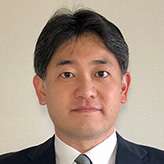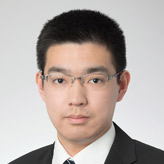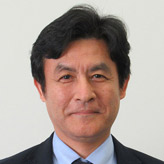SIP-adus Workshop 2022
Abstracts & Speakers List
- Oct. 11 [Tue.]
- Opening Session
- Regional Activities
- Human Factors
- Impact Assessment
- Japanese Government
- Panel Discussion
- Oct. 12 [Wed.]
- Dynamic Map
- Connected Vehicles
- Cybersecurity
- Safety Assurance
- Service and Business Implementation
- Closing
- Cybersecurity
- It is expected that UN regulation will soon be adopted to detect and respond to cyber attacks, but it is not easy for each OEM to determine and implement the optimum detection performance level for their communication system. In this research, focusing on in-vehicle IDS / IDPS, we will consider the evaluation method for selecting the optimum IDS/IDPS for each OEM's communication system, technical reqirements for the initial resoponse/recovery action when cyber attacks detected and the basic thought of establishing V-SOC which can be said to be a competitive area for each OEM.
Moderator
-

Yasumasa Hirai
Group Manager
E/E Architecture Development Div.
Toyota Motor Corporation
JapanYasumasa Hirai had researched and developed information security technology, embedded security systems and IoT security, such as cryptographic protocol, cryptographic hardware, anomaly detection technology, and secure development methodology, at Information system Industry for about 18 years. He has worked on project related on cybersecurity development process for vehicle, and is working as a leader of SIP adus Cybersecurity from 2022.
Speaker
-

Joshua Davis
Group Vice President, Chief Cybersecurity Officer
Cybersecurity & Risk Management
Toyota Motor North America, Inc.
The United States of AmericaJosh Davis, Group Vice President and Chief Cybersecurity Officer, Toyota Motor North America (TMNA), and Senior Vice President and Chief Information Security officer, TCNA, adds additional global responsibilities and is named Group Vice President and Chief Cybersecurity Officer, and Senior Advisor- Global Enterprise Security, TMC effective 6/20/22. Josh leads teams responsible for delivering Cybersecurity Solutions across products, services and enterprises. Josh joined Toyota in January, 2017, and is based at the North American headquarters in Plano, Texas.
Prior to joining Toyota, Josh spent 20 years leading the enterprise cybersecurity, online product security, and classified government systems groups at Qualcomm in San Diego, CA. While there, he led activities that resulted in several US DOJ indictments of government sponsored and criminal cyber attackers.
Josh holds a Master of Science in Information Security and Assurance from Carnegie Mellon University; the advanced computer security certificate from Stanford University, and several other professional certifications. Josh served as Vice Chair of the Automotive ISAC (2020-2021), and currently serves as Chair, Automotive-ISAC (2022-2023). He is also the co-founder of the Cloud Security Alliance, and has published guidelines for ISACA and ISSA. -

Frank Kargl
Professor and Institute Director
Institute of Distributed Systems
University of Ulm
GermanyProf. Kargl investigates security and privacy of connected cars and cooperative mobility for over 15 years. During this time, he contributed a large body of peer-reviewed literature in this field, participated in major national and European cooperative projects, and organized conference like IEEE VNC. He is now scientific lead of the German BMBF-funded project SecForCARs which cooperates with Japanese partners in the SAVE project. His current research interests include in particular misbehavior detection and trust modeling in Connected, Cooperative & Automated mobility.
-

Shinichi Kan
Senior Associate
Technology Consulting
PwC Consulting
JapanAs a consultant at PwC, he has worked on projects related to IoT security in a major electronics company and he has researched software functionality/quality evaluations of IDaaS products, which are cloud-based authentication and authorization software.
He also worked for a global investment company on projects to comply with global regulatory standards such as NIST Cybersecurity Framework and ISO/IEC 27001.
In addition, he also has experience of research on the hardware side, such as the electronics devices and circuits used in automobiles.
Recently, he has been researching how to utilize vulnerability information for incident response in automotive. He also has experience in honeypot research and holding CTF to collect threat/vulnerability information in connected systems. -

Tsutomu Matsumoto
Professor
Faculty of Environment and Information Sciences
Yokohama National University
JapanTsutomu Matsumoto is a professor at the Faculty of Environment and Information Sciences, Yokohama National University, and the Director of the Cyber Physical Security Research Center at the National Institute of Advanced Industrial Science and Technology. He received a Doctor of Engineering degree from the University of Tokyo in 1986. He has been interested in research and education of Embedded Security Systems such as IoT Devices, Cryptographic Hardware, In-vehicle Networks, Instrumentation and Control Security, Tamper Resistance, Biometrics, Artifact-metrics, and Countermeasure against Cyber-Physical Attacks. He has been working on automotive security for about 15 years and has done research on CAN security, ECU security, sensor system security, automated driving security, and in-vehicle honeypots for observing attacks on automobiles from the Internet. He serves as the chair of the Japanese National Body for ISO/TC68 (Financial Services) and the Cryptography Research and Evaluation Committees (CRYPTREC). He received the IEICE Achievement Award, the DoCoMo Mobile Science Award, the Culture of Information Security Award, the MEXT Prize for Science and Technology, and the Fuji Sankei Business Eye Award.

